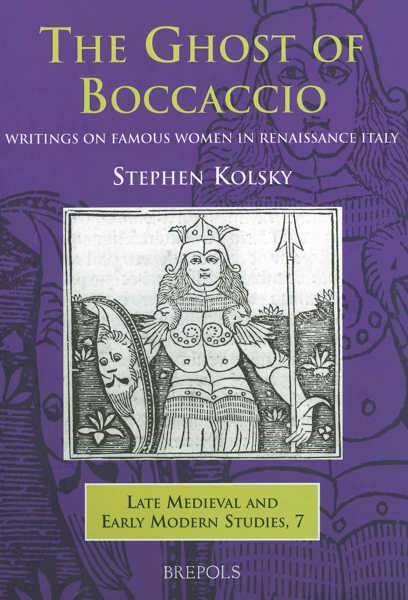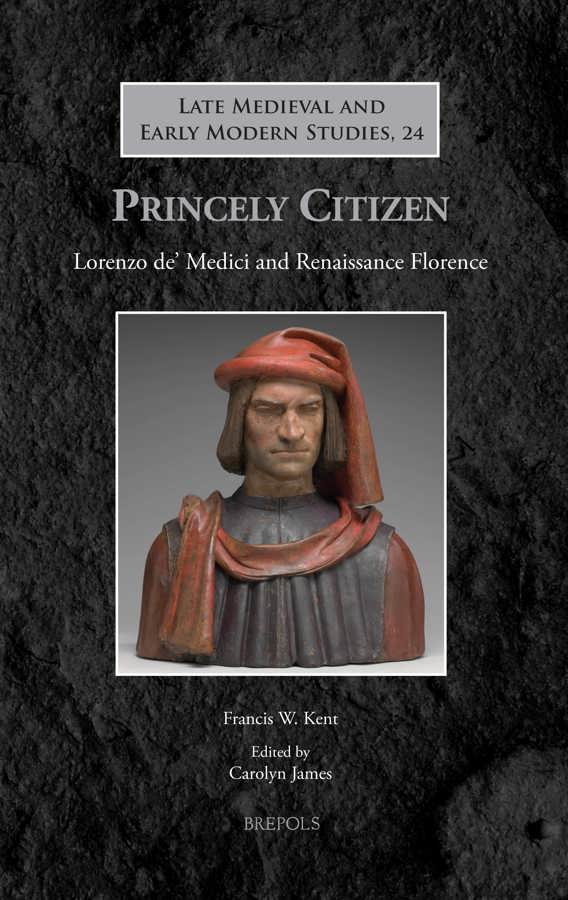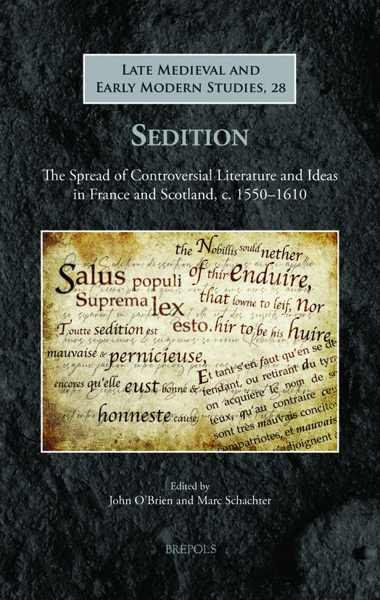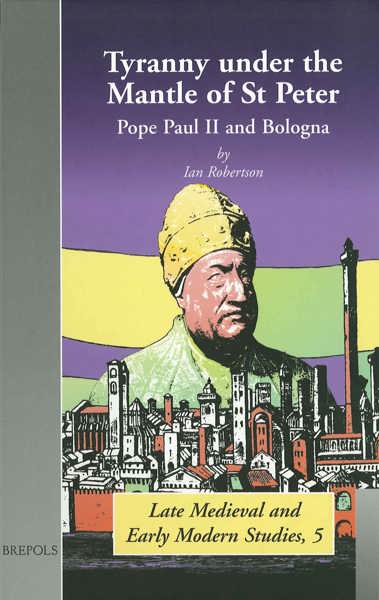
Princely Citizen
Lorenzo de' Medici and Renaissance Florence
Francis W. Kent
(auth)
Carolyn James (ed)
- Pages: viii + 372 p.
- Size:156 x 234 mm
- Language(s):English, Italian, Latin
- Publication Year:2013
- € 95,00 EXCL. VAT RETAIL PRICE
- ISBN: 978-2-503-54171-6
- Hardback
- Available
- € 95,00 EXCL. VAT RETAIL PRICE
- ISBN: 978-2-503-57199-7
- E-book
- Available
This collection of sixteen essays by F. W. Kent reassesses the political and cultural role of Lorenzo de’ Medici, de facto ruler of Florence between 1465 and 1492.
"In its scope and detail, this book will serve as a wonderful complement to Kent’s previous Lorenzo de’ Medici and the Art of Magnificenceand a source of inspiration and practical advice for new researchers in the field. It will also be useful for those of us who look forward to the completion of the critical edition of Lorenzo de’ Medici’s Lettere, (...) Professor R. Rubinstein started the project, and Bill Kent contributed to it for several years as general editor before his untimely death. Lovingly edited by Carolyn James, this wonderful collection of essays will also help us chart our way through that wondrous sea of letters." (Carles Gutiérrez-Sanfeliu in: Parergon, vol. 31, 2014, p. 184-185)
" (...) this collection (...) gives a powerful impression of the achievements and the method of work of one of the leading specialists of the history and society of Renaissance Florence." (Lorenz Böninger, in: Renaissance Studies, 29.3, 2014, p. 466-467)
"Well-written and clearly edited, these essays are the work of a master reviewing a fruitful career. James’s editing is primarily for consistency and clarity n language and formatting; additional bibliographies have been added, along with unpublished manuscripts in footnotes. The archival work here is thorough and clear-headed, and Kent is careful to balance assertions with evidence, or with tentative hedging where evidence is thin, and to support his arguments with ample reference to a wide body of English, French, and Italian scholarship. Minor repetitions or confusions between essays reflect the fact that they were written in different periods, for different purposes, and do not detract from readability. Demonstrating how Lorenzo’s rule over Florence was the product of a lifetime’s training and practice, Kent shows how Il Magnifico was able to balance the contradictory roles of prince and citizen." (Colin Rose, in: Renaissance and Reformation / Renaissance et Réforme 38. 4, 2015, p. 198-200)
Lorenzo de’ Medici (1449–92) was in his own time one of the most renowned of Renaissance figures. His myth has continued to fascinate both scholars and the many tourists who are drawn by it to explore what remains of the Medicean presence in Florence. Lorenzo’s first English biographer, William Roscoe, described him as the most remarkable man who had ever lived in ancient or modern times. This collection of essays explores Lorenzo’s apprenticeship as the de facto ruler of Florence and the means by which he exerted control over friends and clients to ensure the ascendancy of the Medici dynasty. The essays place the religious and artistic patronage of Lorenzo in the context of his political career and explore other important aspects of his emergence as the princely citizen of a still proud republic.
Francis W. Kent (1942–2010) established his reputation as a cultural and social historian of Renaissance Florence with his first monograph, Household and Lineage in Renaissance Florence. He turned his attention to Lorenzo de’ Medici in the late 1980s, producing a steady stream of essays, collected here for the first time, and a major study of Lorenzo’s art patronage, Lorenzo de’ Medici and the Art of Magnificence. After the death of Nicolai Rubinstein in 2002, the first general editor of the multi-volume critical edition of Lorenzo de’ Medici’s letters, Kent took charge of the ongoing project and oversaw the publication of several more volumes. His forthcoming biographical study of Lorenzo’s early career will be published by Harvard University Press.
Introduction (Carolyn James)
The Young Lorenzo, 1449–69
Lorenzo de’ Medici and the Love of Women
Sainted Mother, Magnificent Son: Lucrezia Tornabuoni and Lorenzo de’ Medici
Lorenzo de’ Medici, Madonna Scolastica Rondinelli, and the Politics of Architectural Patronage at the Convent of Le Murate (1471–72)
Lorenzo de’ Medici at the Duomo
Lorenzo de’ Medici’s Acquisition of Poggio a Caiano in 1474 and an Early Reference to his Architectural Expertise
Heinrich Isaac’s Music in Laurentian Florence: New Documents
New Light on Lorenzo de’ Medici’s Convent at Porta San Gallo
Bertoldo ‘Sculptore’ and Lorenzo de’ Medici
Patron–Client Networks in Renaissance Florence and the Emergence of Lorenzo as ‘Maestro della Bottega’
‘Lorenzo … amico degli uomini da bene’: Lorenzo de’ Medici and Oligarchy
Unheard Voices from the Medici Family Archive in the Time of Lorenzo de’ Medici
Lorenzo de’ Medici and the ‘Lads from the Canto della Macina’
Prato and Lorenzo de’ Medici
The Death of Lorenzo: ‘The World Turned Upside Down’




